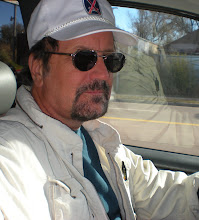Thursday, January 12, 2012
THE BOOK I TOLD YOU ABOUT - "ON KILLING"
From Publishers Weekly
Drawing on interviews, published personal accounts and academic studies, Grossman investigates the psychology of killing in combat. Stressing that human beings have a powerful, innate resistance to the taking of life, he examines the techniques developed by the military to overcome that aversion. His provocative study focuses in particular on the Vietnam war, revealing how the American soldier was "enabled to kill to a far greater degree than any other soldier in history." Grossman argues that the breakdown of American society, combined with the pervasive violence in the media and interactive video games, is conditioning our children to kill in a manner siimilar to the army's conditioning of soldiers: "We are reaching that stage of desensitization at which the infliction of pain and suffering has become a source of entertainment: vicarious pleasure rather than revulsion. We are learning to kill, and we are learning to like it." Grossman, a professor of military science at Arkansas State University, has written a study of relevance to a society of escalating violence.
Copyright 1995 Reed Business Information, Inc.
From Library Journal
Grossman (psychology, West Point) presents three important hypotheses: 1) That humans possess the reluctance to kill their own kind; 2) that this reluctance can be systematically broken down by use of standard conditioning techniques; and 3) that the reaction of "normal" (e.g., non-psychopathic) soliders to having killed in close combat can be best understood as a series of "stages" similar to the ubiquitous Kubler-Ross stages of reaction to life-threatening disease. While some of the evidence to support his theories have been previously presented by military historians (most notably, John Keegan), this systematic examination of the individual soldier's behavior, like all good scientific theory making, leads to a series of useful explanations for a variety of phenomena, such as the high rate of post traumatic stress disorders among Vietnam veterans, why the rate of aggravated assault continues to climb, and why civilian populations that have endured heavy bombing in warfare do not have high incidents of mental illness. This important book deserves a wide readership. Essential for all libraries serving military personnel or veterans, including most public libraries.
Mary Ann Hughes, Neill P.L., Pullman, Wash.
Biography: Lieutenant Colonel Dave Grossman
LT. COL. DAVE GROSSMAN, U.S. Army (Ret.) Director, Warrior Science Group, www.killology.com: Member, American Board for Certification in Homeland Security; Member, American College of Forensic Examiners Institute
Lt. Col. Dave Grossman is an internationally recognized scholar, author, soldier, and speaker who is one of the world's foremost experts in the field of human aggression and the roots of violence and violent crime.
Col. Grossman is a former West Point psychology professor, Professor of Military Science, and an Army Ranger who has combined his experiences to become the founder of a new field of scientific endeavor, which has been termed “killology.” In this new field Col. Grossman has made revolutionary new contributions to our understanding of killing in war, the psychological costs of war, the root causes of the current "virus" of violent crime that is raging around the world, and the process of healing the victims of violence, in war and peace.
He is the author of On Killing, which was nominated for a Pulitzer Prize; has been translated into Japanese, Korean, and German; is on the U.S. Marine Corps Commandant's required reading list; and is required reading at the FBI academy and numerous other academies and colleges. Col. Grossman co-authored Stop Teaching Our Kids to Kill: A Call to Action Against TV, Movie and Video Game Violence, which has been translated into Norwegian and German, and has received international acclaim. Col. Grossman's most recent book, On Combat, has also placed on the U.S. Marine Corps Commandant's Required Reading List and has been translated into Japanese and Korean.
Col. Grossman has been called upon to write the entry on “Aggression and Violence” in the Oxford Companion to American Military History, three entries in the Academic Press Encyclopedia of Violence and numerous entries in scholarly journals, to include the Harvard Journal of Law and Public Policy.
He has presented papers before the national conventions of the American Medical Association, the American Psychiatric Association, the American Psychological Association, and the American Academy of Pediatrics.
He has presented to over 100 different colleges and universities worldwide, and has trained educators and law enforcement professionals, in the field of school safety, at the state and regional level, in all 50 states and over a dozen foreign nations.
He helped train mental health professionals after the Jonesboro school shootings, and he was also involved in counseling or court cases in the aftermath of the Paducah, Springfield, Littleton, Virginia Tech, and Nickel Mines Amish school shootings.
He has been an expert witness and consultant in state and Federal courts, to include serving on the prosecution team in UNITED STATES vs. TIMOTHY MCVEIGH.
He has testified before U.S. Senate and Congressional committees and numerous state legislatures, and he and his research have been cited in a national address by the President of the United States.
Col. Grossman is an Airborne Ranger infantry officer, and a prior-service sergeant and paratrooper, with a total of over 23 years experience in leading U.S. soldiers worldwide. He retired from the Army in February 1998 and has devoted himself to teaching, writing, speaking, and research. Today he is the director of the Killology Research Group, and in the wake of the 9/11 terrorist attacks he is on the road almost 300 days a year, training elite military and law enforcement organizations worldwide about the reality of combat.
Subscribe to:
Post Comments (Atom)


No comments:
Post a Comment